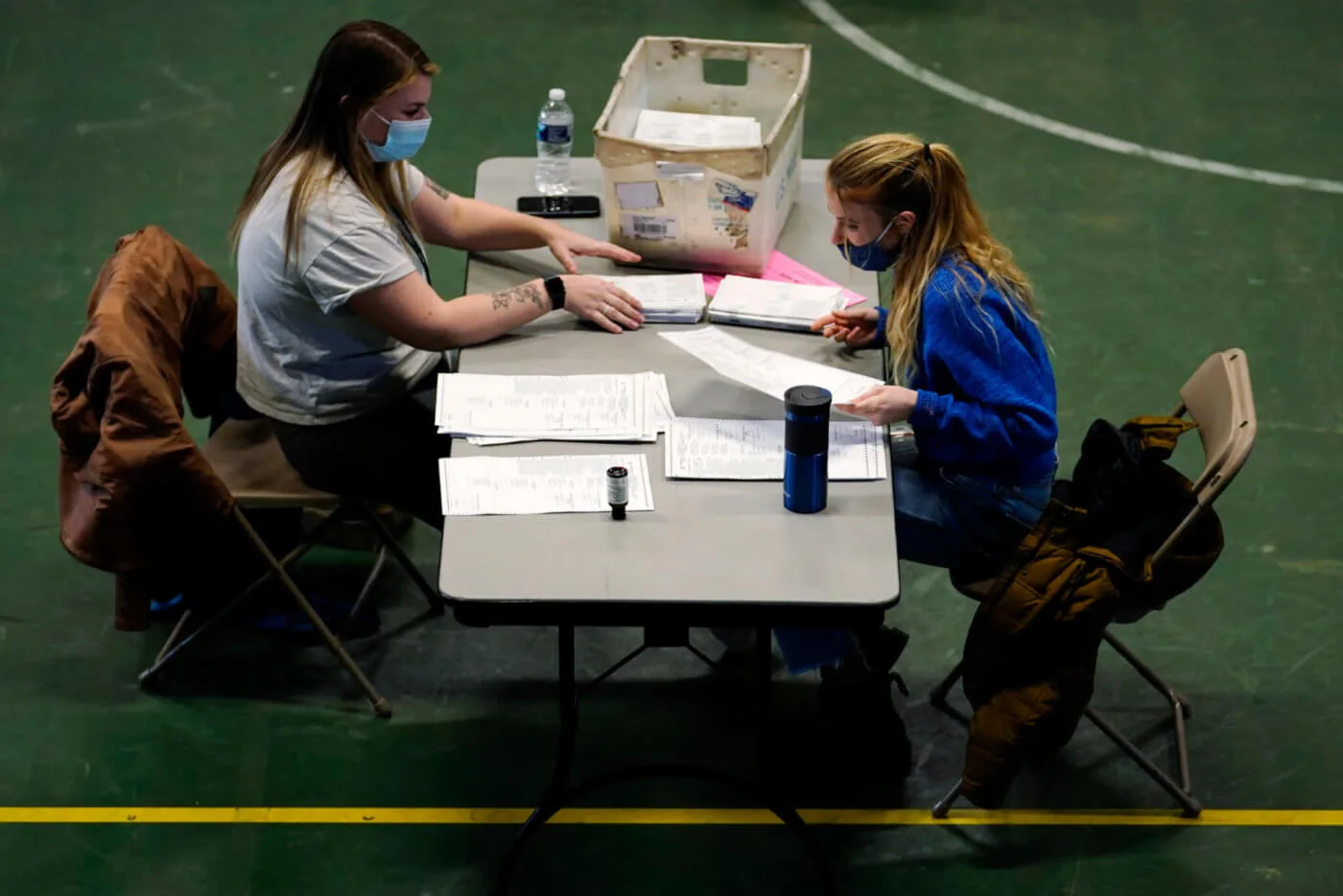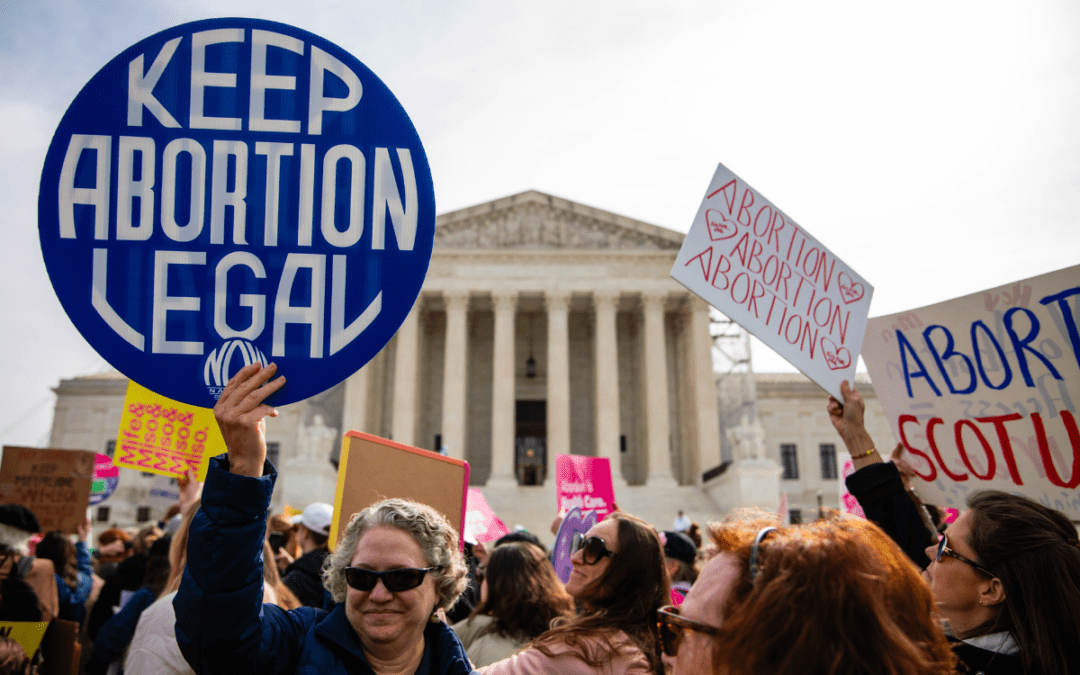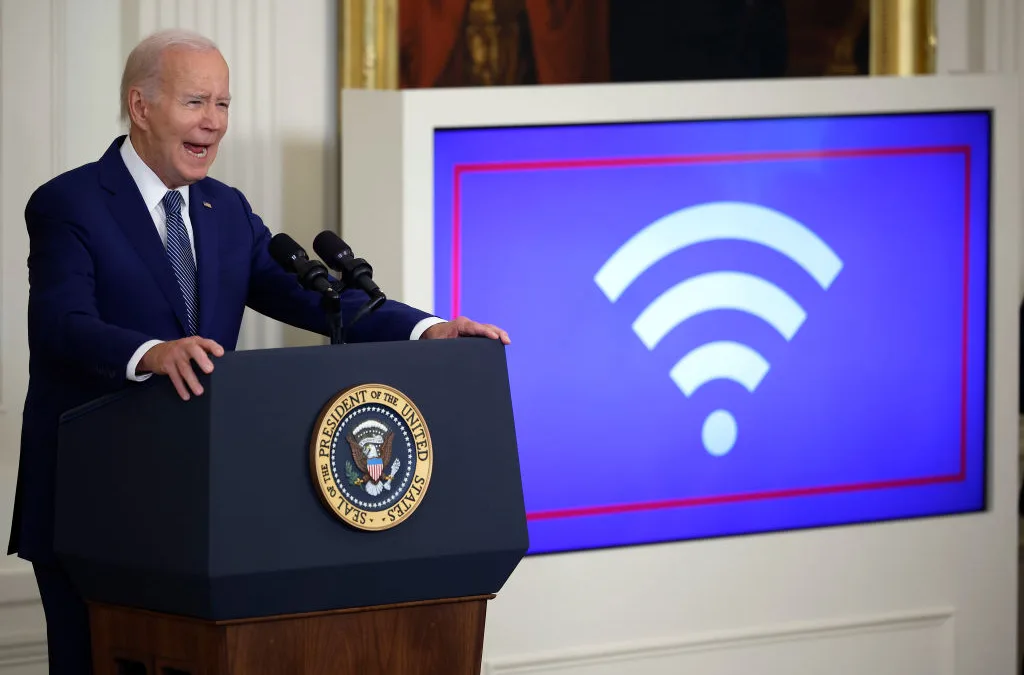
Chester County, Pa., election workers check mail-in and absentee ballots for the 2020 General Election in the United States at West Chester University, Nov. 3, 2020, in West Chester, Pa. (AP Photo/Matt Slocum)
Gov. Tom Wolf said the state House Legislative Budget and Finance Committee has no authority to audit the election, and the audit “would be incomplete, duplicative, and unreliable.”
Citing confusion and inconsistencies from federal and state court decisions, orders, and administrative guidance, Republicans in the Pennsylvania House successfully pushed through a proposal to review election procedures.
The resolution directs the Legislative Budget and Finance Committee, or a contractor it will hire, to conduct a study and report back with the results by February.
The measure passed by a vote of 112 to 90. It does not need to be approved by Gov. Tom Wolf or the state Senate. There is no limit on how much the committee can spend on the study.
GOP lawmakers said the study is about due process and making sure there is accountability in the election process.
House Democrats argued that the proposed study was an unnecessary and an unconstitutional waste of money.
“The Legislative Budget Finance Committee has no expertise or role in election administration and no statutory authority outside the fiscal realm, and it is inappropriate to pretend it does,” Wolf said in a statement. “An audit by the LBFC would be incomplete, duplicative, and unreliable.”
Department of State spokeswoman Wanda Murren said the state has plans for another “risk limiting” audit under a pilot program to apply statistical tools to the Nov. 3 election, measuring its accuracy and to check for possible interference.
“Instead of the House Republicans interfering in an existing and trustworthy audit process, especially when they were on the ballot, they should allow the non-partisan experts to do their job. That is the best way to ensure the public can have faith in the audit results,” Murren said.
According to the resolution, the committee study will include how many mail-in ballots were requested and counted and details about how provisional ballots were used. It will also examine the technical performance of new voting machines, how poll watchers were treated, and different county practices for “curing,” or fixing, ballots that lacked secrecy envelopes or had other problems.
The resolution directs the Legislative Budget and Finance Committee, or a contractor it will hire, to conduct a study and report back with the results by February.
The measure passed by a vote of 112 to 90. It does not need to be approved by Gov. Tom Wolf or the state Senate. There is no limit on how much the committee can spend on the study.
GOP lawmakers said the study is about due process and making sure there is accountability in the election process.
House Democrats argued that the proposed study was an unnecessary and an unconstitutional waste of money.
“The Legislative Budget Finance Committee has no expertise or role in election administration and no statutory authority outside the fiscal realm, and it is inappropriate to pretend it does,” Wolf said in a statement. “An audit by the LBFC would be incomplete, duplicative, and unreliable.”
Department of State spokeswoman Wanda Murren said the state has plans for another “risk limiting” audit under a pilot program to apply statistical tools to the Nov. 3 election, measuring its accuracy and to check for possible interference.
“Instead of the House Republicans interfering in an existing and trustworthy audit process, especially when they were on the ballot, they should allow the non-partisan experts to do their job. That is the best way to ensure the public can have faith in the audit results,” Murren said.
According to the resolution, the committee study will include how many mail-in ballots were requested and counted and details about how provisional ballots were used. It will also examine the technical performance of new voting machines, how poll watchers were treated, and different county practices for “curing,” or fixing, ballots that lacked secrecy envelopes or had other problems.
Politics

How Project 2025 aims to ban abortion in Pennsylvania
Former president Donald Trump said abortion was a state’s rights issue recently, but conservative organizations, under the banner “Project 2025,”...

736,000 PA households could lose crucial help on their internet bills
Time is running out for the Affordable Connectivity Program, which provides low-cost high speed internet access for over 736,000 Pennsylvania...

What to know about Trump’s legal issues
Over the past year, former president Donald Trump has become the center of not one, not two, not three, but four criminal investigations, at both...
Local News

Conjoined twins from Berks County die at age 62
Conjoined twins Lori and George Schappell, who pursued separate careers, interests and relationships during lives that defied medical expectations,...

Railroad agrees to $600 million settlement for fiery Ohio derailment, residents fear it’s not enough
Norfolk Southern has agreed to pay $600 million in a class-action lawsuit settlement for a fiery train derailment in February 2023 in eastern Ohio,...






